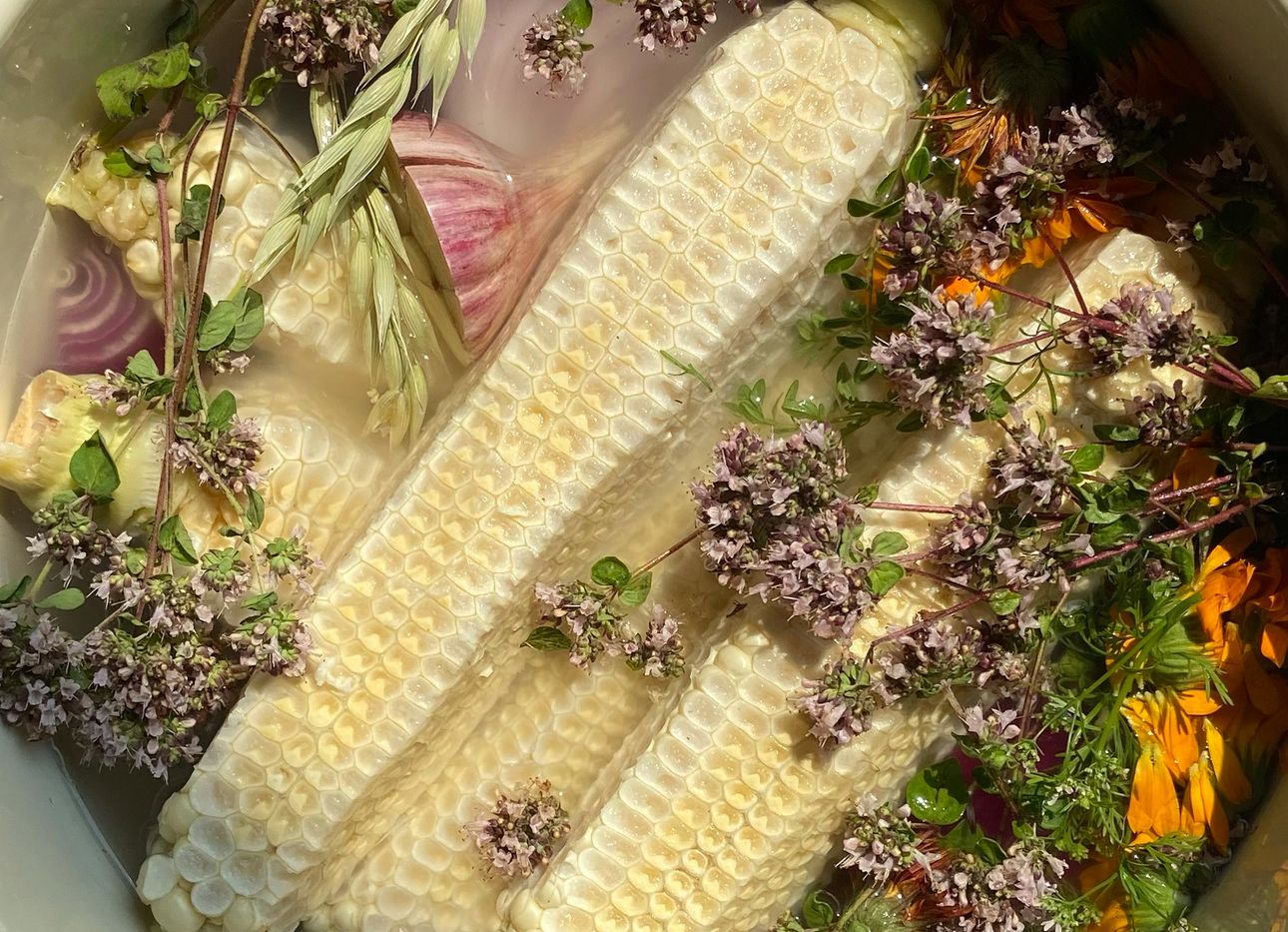
Meech Boakye Explores the “Multispecies Collaboration” That Produces Our Food
In Canadian artist Meech Boakye’s hands, fermented cherry and plum blossoms become leavening agents for bread, soil from their backyard transforms into clay for encasing a baked chicken, and leftovers from past meals turn into turmeric, charcoal, and purple sweet-potato crackers. While Boakye’s Instagram documentation of these culinary experiments is mesmerizing, their focus on food is about much more than aesthetics: It’s centered on unpacking the deep, abundant relationships between the processes, systems, and life forms that shape what we eat.
“I first became fascinated by sourdough as a living thing,” Boakye says, from their home in Portland, Oregon. “That opened an interest in all the living things that go into my food—beginning with tiny organisms, like wild yeast, to the people growing and picking my food.” In the last year, Boakye has devoted much of their time to researching how food is made—an activity they’ve described as “multispecies collaboration”—and reflecting on their findings by making dishes that incorporate subjects including racist anti-foraging laws, ancient writings on plant partnerships, age-old fermentation techniques, and mycophilia.
Kombucha scobies currently grow in Boakye’s cupboards, interacting with infusions of herbs either cultivated on their balcony, found in the wild, or traded at the local farmers market. In other investigations, their fascination with meals based on residue and preservation has led to eclectic experiments with broths (such as an aromatic version concocted from lion’s mane mushrooms, celery tops, and garlic-chive flowers) and research into the foraging rituals of ancestral Black and Indigenous communities.
Not all of Boakye’s creations are made to be eaten, though. They transform flowers and fronds that have been rendered inedible by contaminated land into bioplastics, or sustainable alternatives to traditional petrochemical plastics, and recently started to apply renewable practices to their digital presence, too: Inspired by the work of California designer and developer Megumi Tanaka, Boakye is in the process of reshaping their website into a hand-coded digital garden, an online notebook that constantly grows, changes, and is meant to be cultivated over time.
While Boakye’s work takes many forms, it remains bound together by a central, altruistic ethos: food as ritual for communal healing and understanding. “I just love feeding people—especially nourishing food, which means free of chemicals and really nutrient-dense,” they say. “I like the idea of caring for organisms as they care for me.”